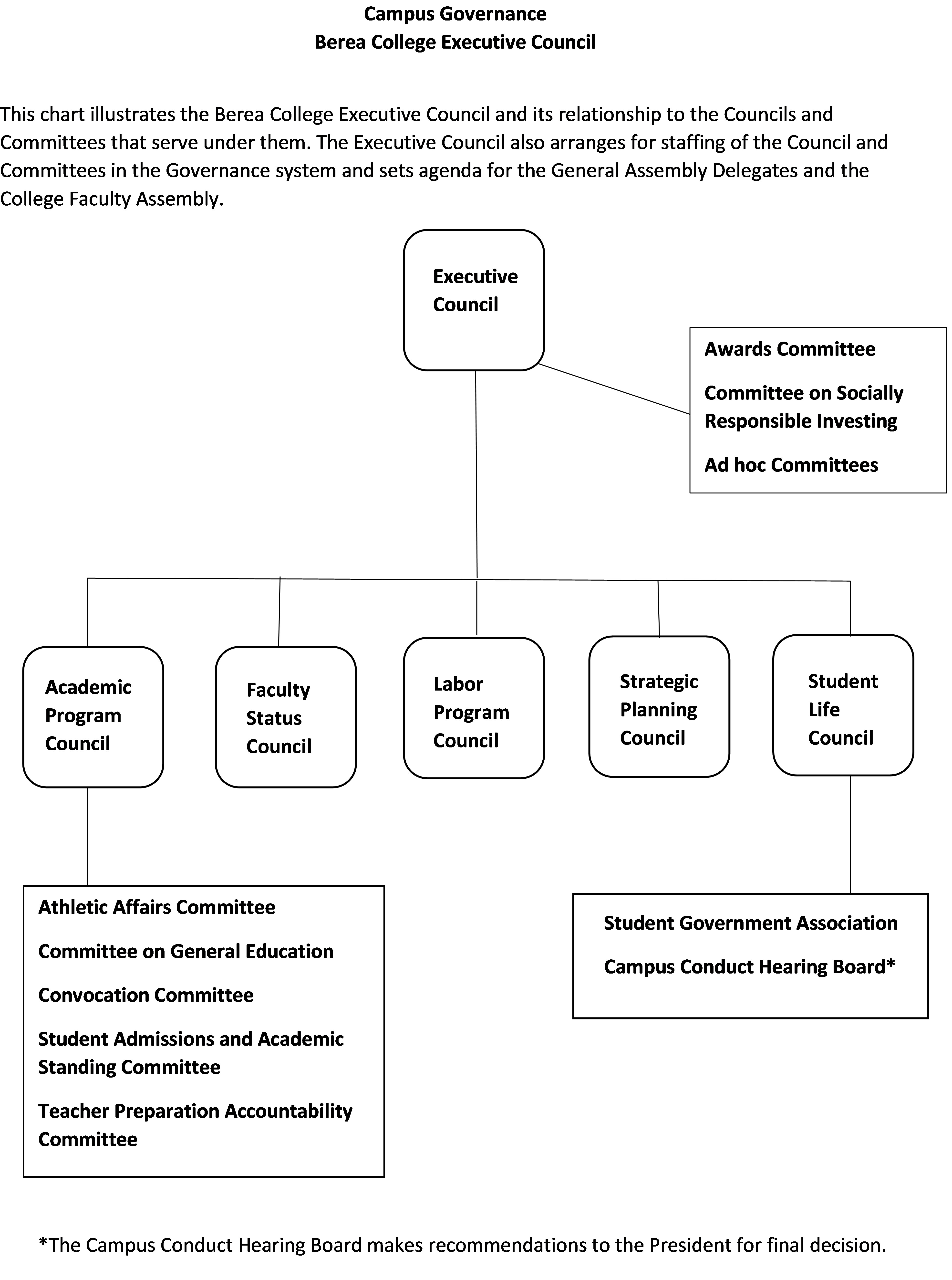Campus Governance
The campus governance structure allows for the inclusion and participation at various levels for all employees of the College. It is designed to provide a means for everyone to engage in some way in the conversations that define and develop our institution. Avenues for participation in decision-making include: communication and sharing information, consultation, voice, and vote. The governance structure is also designed to insure that decisions on important College matters are carefully considered, promptly made, and widely understood. It allows for participation by various campus groups—College Faculty, College Faculty Assembly, General Assembly, General Assembly Delegates, Staff Forum, students (represented by the Student Government Association), and administration. All of these groups function under the general supervision of the President as delegated by the Board of Trustees.
The College Faculty Assembly and General Assembly Delegates are organized to conduct their affairs through several councils and subordinate committees. These bodies, whose composition and specific responsibilities are described below, engage primarily in consideration of policy issues and formulation of recommendations; in some instances they are authorized to make operational decisions. Policy recommendations from a council are normally directed either to the College Faculty Assembly or the General Assembly, whichever is appropriate. The College Faculty Assembly makes recommendations on both academic program matters and faculty personnel policies. The General Assembly concerns itself with nonacademic affairs affecting the general welfare of the College and the fulfillment of its purposes. (See the General Assembly Delegates and College Faculty Assembly Constitution.) Within its purview are those matters not restricted to the College Faculty, including the labor program, financial aid, extracurricular activities, student conduct, residence hall life, College calendar, campus environment, some strategic planning initiatives, and the general working circumstances for staff. The addition or deletion of an academic major and modifications in the stated personnel policies for College Faculty require the approval of the President and the Board of Trustees.
The Staff Forum provides a formal structure of information-sharing and voice for staff members. It serves in an advisory capacity to administrators and faculty decision-making bodies.
The Student Government Association is represented in the General Assembly by its officers. As full members of the General Assembly, Student Government Association officers may bring issues to the attention of that body, or direct them to the Student Life Council or other councils as appropriate.
Implementation of policy decisions rests largely with the administration under the direction of the President. Along with the Board of Trustees, College Faculty Assembly, and General Assembly Delegates, administrative officers also have responsibility for policy formulation. In addition, the administration provides information, guidance, and context to councils and committees when necessary, and works to insure consistency and continuity. Policy implementation is also addressed indirectly through the annual budget or by special allocation. The Board is vested with full legal and fiscal responsibility for the College, and the campus governance system does not and cannot diminish the Board’s authority. See the following diagram of the governance structure.

